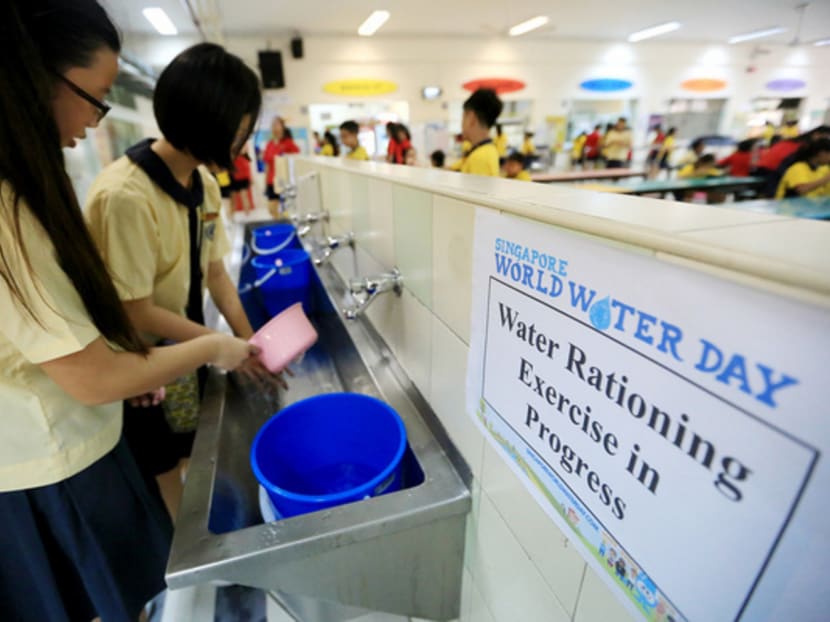S’pore’s long-term water supply a cause for worry: Masagos
SINGAPORE — The long-term supply of water remains a source of worry for the Republic as it cannot always rely on the supply from Johor to replenish its reservoirs, Minister for the Environment and Water Resources Masagos Zulkifli said yesterday.

Minister for Environment and Water Resources Masagos Zulkifli said there is no need for a water rationing exercise just yet, but warned Singaporeans not to take the water supply for granted and to practise water-saving techniques. PHOTO: KOH MUI FONG
SINGAPORE — The long-term supply of water remains a source of worry for the Republic as it cannot always rely on the supply from Johor to replenish its reservoirs, Minister for the Environment and Water Resources Masagos Zulkifli said yesterday.
Due to the prolonged dry weather, water levels in the Linggiu Reservoir in Johor — which can supply up to 60 per cent of Singapore’s water needs — are now at about 42 per cent, just above the historical low of 41 per cent in October 2015, he added.
Since March, national water agency PUB has been pumping an average of 16 million gallons of NEWater per day into Singapore’s reservoirs to maintain healthy water levels.
Singapore can currently draw 250 million gallons per day (mgd) from the Johor River.
However, Mr Masagos said there had been disruptions on many days last year and also this year due to “intrusion of salinity”, which occurs when the water level at Linggiu is low, and salt water seeps into the river.
According to PUB, there were close to 100 occasions last year where Singapore’s ability to draw water from the Johor River was temporarily affected.
Speaking at Elias Park Primary School, where a water rationing exercise was being conducted to mark World Water Day, Mr Masagos noted that Singapore has been investing in technology that allows it to reuse water that is part of the island’s drainage and sewage system, as well as to produce water through desalination, but with less energy.
“All these sources of water use energy and energy become a critical factor of cost in our water-supply chain. Over the long term, we have to worry about this because we cannot always rely on the supply from Johor to replenish our reservoirs.”
Despite the dry spell, Singapore, which has not held a water rationing exercise since 1964 — does not need to conduct such an exercise yet, Mr Masagos said.
“However, it does not mean that we should take our water supply for granted. Every (drop of) water we save counts and changing our habits to make sure that at the end of the day, all of us use less over the years will matter.
“It could be something like taking one minute less in the shower, using a cup when brushing teeth.”
Individuals and industrial users of water must also put in place technology and processes that will use as little water as possible, as well as ensure that water is not inevitably wasted, he added.
For example, do not buy washing machines that have been rated lowly for water savings.
Mr Masagos said: “We are projecting demand over the next decade and we have to be ready for disruptions to our water supply both from rain coming down less (often) and those disruptions that may occur at our Johor River supply.
“Therefore, it’s necessary for us to put in (place) such mitigation (measures) — more desalination plants, more NEWater processing — to ensure we don’t ever have to go into a water crisis.”






